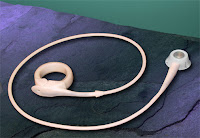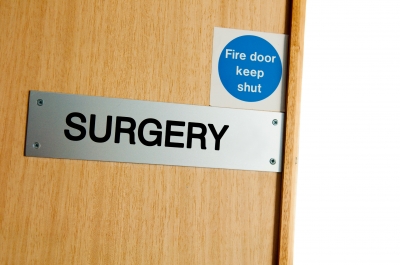Here’s a brain teaser for you. What do you do when the people who most need your product can’t afford to buy it? Purveyors of big screen TVs and other electronic knick-knacks have found the answer in buy-now- pay-nothing-til-2037 deals. And that works well where the punters are queuing round the block but just don’t have the readies.
But what to do when your potential customers don’t know they need your product? And even if they did, may not have the wherewithal to drop up to 13 large acquiring it? Give up? Then forget about a career in pharmaceutical PR. You get the government to pay for it, dummy.
The folks at Allergan have exactly this problem. Allergan make a nifty little thing called a lap-band. If you chop open an obese person and whack a lap-band in, they suddenly can’t eat as much and the theory is that should do all sorts of good things for them.
Lap-Band surgery is starting to get very popular. Two years ago, just 8,193 were done in Australia, but last financial year this had grown to 12,247. A whopping 50% increase in the market in just one year. There’s gold in them thar hills.
You don’t need Glenn Stevens to run the numbers to realise that the number of people with the necessary girth AND mullah is not going to last much longer. Solution: get the government (that is, the taxpayer) to step in and start picking up the tab.
Allergan’s done all the right things. Endow a university with some dosh to research how terrific their product is. Smile happily as the researchers go forth and tell the government. Glow contentedly when the government makes a recommendation that consideration be given to ‘boosting access’ to their product. It’s all good stuff, but it’s not exactly moving like a freight train and where’s that government money?
Time for a bit of PR creativity. Time to introduce the new sport of Extreme Lobbying. Professor Dawn DeWitt from the University of Melbourne explained how it works to ABC’s AM program yesterday.
Prof DeWitt is helping the folks at the Monash Centre for Obesity Research and Education (funded by Allergan) with a new “trial” of Allergan’s lap-band product in 30 indigenous Australians in the Goulburn Valley. She wants to see if they have the same success as folks in the “white population”.
This is a product which has been installed in almost 18,500 Australians in the last two years alone. Even basic maths would tell us that over 500 of those could have been of indigenous descent (and some of them may even have been from the Goulburn Valley). So what exactly will this trial tell us that that we don’t already know? Is there some suggestion that people in Goulburn Valley are constructed differently from the rest of us?
Prof DeWitt was ready with the answer to that one. She told AM that “if [the trial] does work then we can go to government and say look there really ought to be a special program to support this in an ongoing way.” Ah, right, so this has nothing to do with the health of indigenous Australians and everything to do with getting taxpayers to pick up the tab for lab-band surgery.
Indigenous Australians suffer 6 times the rate of Type II Diabetes when compared to the rest of the population. Unfortunately for Allergan they also have significantly less purchasing power when it comes to surgical solutions. This latest trial is clearly nothing more than a disingenuous attempt to end-run that problem and open up a brand new government funded gold-mine for Allergan.
Extreme lobbying uses actual surgical intervention in order to make your political point (let’s hope Turnbull doesn’t start doing that – Rudd-ectomy anyone?). This trial is not asking patients to fill in a survey or keep a food diary. This is significant surgery that requires major re-operation in 1 in 5 cases.
In more than half of the recipients, it does not result in significant weight loss. At most, it has only a two in five chance of causing a remission of Type II Diabetes (for up to 9 years). And even according to the lastest research funded by Allergan, patients only gain 1.2 years of life expectancy. To put these trial recipients through all of this for research purposes is questionable. But to do it as part of a lobbying exercise is outrageous.
If Monash’s Centre for Obesity Research is really that concerned about the rate of diabetes in indigenous Australians, how about spending some time and money looking at the fact that they consume twice as much soft drink as the rest of the population? Oh that’s right, silly me. No-one’s going to pay them to do that.
Also published in Crikey


















Recent Comments